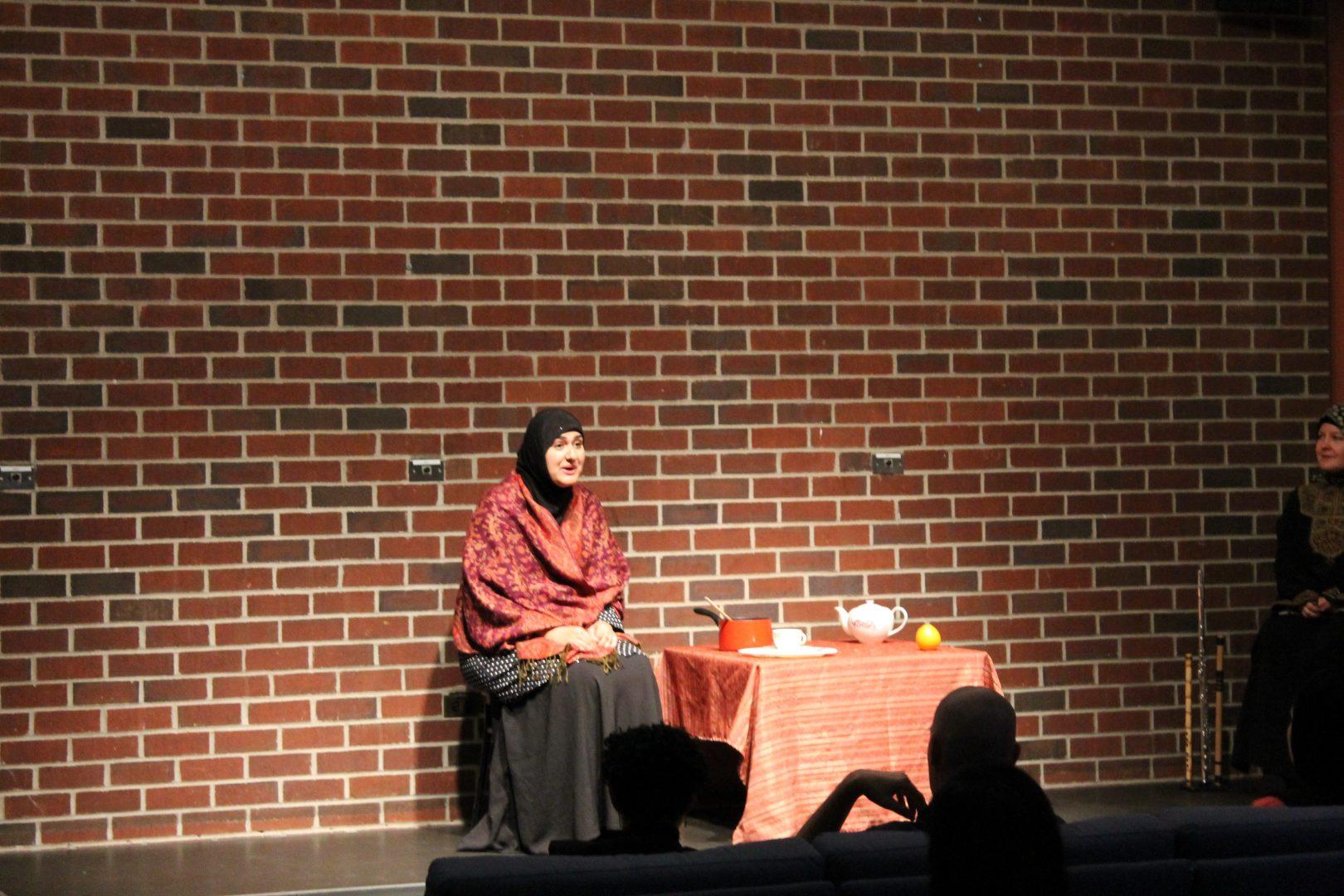Rohina Malik Performs the One-Woman Play “Unveiled”
October 3, 2013

The Muslim Students Association hosted the one-woman play, “Unveiled” in the Student Lounge on Oct. 2 at 6 p.m at Fordham College at Lincoln Center (FCLC).
“Unveiled”, written and performed by Rohina Malik, is the story of five women and the struggles they come to face as Muslims in a post-Sept. 11 America. A constant figure within all five stories is the character making or serving tea, which one of Malik’s characters calls “a symbol of hospitality and friendship.” After the play, a Q&A session was held for the audience to ask Malik questions.
When asked what inspired her to write the play, Malik said she was inspired by the reactions after Sept. 11 as well as the strength of many people that she knew. “The reason I wrote this play was because of hate crimes. My hope was to challenge stereotypes of women, Muslim women and the veil,” Malik said.
The play’s is mixture of fabricated stories and actual events. The first story was told by a woman who attended her best friend’s wedding and became involved in an argument with someone who began to use a variety of racial slurs, almost resulting in a physical altercation. This story is based on an experience that had happened to her personally at her own best friend’s wedding, Malik said.
The second told of a Muslim convert that was murdered by a group of men, which Malik said was based on the actual murders of Muslims after Sept. 11.
The third story was similarly based on an actual event of a Sikh man that was murdered in Arizona.
The fifth and last story was told by a woman who lost her brother in the twin towers after the Sept. 11 attacks. This was also based on actual families who had lost their relatives and friends in the twin towers.
On the subject of prejudices, Malik said that they tend to originate from ignorance. “People who have never interacted with Muslims buy into the stereotype. When people get to know each other, all the hatred goes away,” Malik said.
When asked what she thought of Malik’s performance, Vidya Visvabharathy, FCLC ’14, said, “I thought it was riveting. She was able to encompass different personalities and characters.”
“Rohina has a true gift of performing that she has used to spread such a powerful message of positivity for everyone to learn from,” Noureen Qureshi, FCLC ’15, said.












ron • Jun 9, 2017 at 2:35 pm
I absolutely dislike any religion. This includes Moslem, Christian, Jew and all others. They are totally unnecessary, they hold back human progress and they have caused much human misery and death and still do.
One would think seemingly intelligent people would fully realize this. But it is proven by themselves that people common sense escapes when it comes to religion. Religion is only a dream of immortality and many are willing to die to prove they will live forever! Thankfully it is all slowly disappearing but it dies hard.